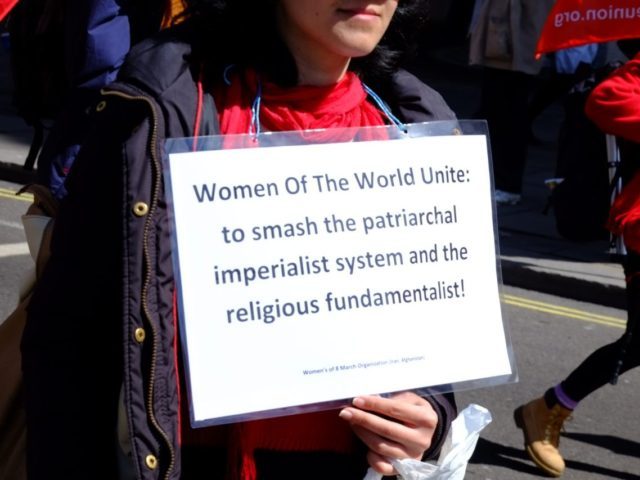Academics are arguing that promoting the research of straight, white men oppresses the voices of minorities and women, according to a report from the Washington Post.
Geographers Carrie Mott and Daniel Cockayne argue in a recent academic paper that citing the work of established white male scholars serves to oppress the voices of minority and women scholars. They argue citing white male scholars furthers “white heteromaculinism,” which they describe as a “system of oppression” that benefits those that are “white, male, able-bodied, economically privileged, heterosexual, and cisgendered.”
Scholarship in critical feminist and anti-racist geographies has increasingly focused on the exclusion, discrimination, and marginalization of particular groups or individuals within the discipline itself. This scholarship has examined how knowledge is reproduced and remembered (Monk 2012; Staeheli and Mitchell 2005); how histories are narrated and by whom (Monk 2006; Peake 2015; Peake and Sheppard 2014); and on the neoliberal logics, transformations of reason in institutions of higher education that conflate political and market values, which structure performance review, hiring and promotional practices, and impact evaluation (Berg 2001; Mountz et al. 2015; Pain, Kesby, and Askins 2011). Building upon bell hooks’ (1984) conception of the ‘neo-colonial white supremacist capitalist patriarchy,’ we use the term ‘white heteromasculinism’ to refer to an intersectional system of oppression describing on-going processes that bolster the status of those who are white, male, able-bodied, economically privileged, heterosexual, and cisgendered.
The citation to bell hooks (sic) is a reference to the popular feminist and social activist whose works are often assigned in Women’s and Gender Studies courses across the country. Her works often focus on the type of intersectionality theory that plays heavily in Mott and Cockayne’s conclusion that citing white male scholars leads to the silencing of minority and female voices.
Mott and Cockayne conclude that academics should review their citations when they are finished with a piece of academic research to ensure that the scholars cited come from diverse backgrounds. This certainly presents an issue, as Mott and Cockayne seem to suggest that research shouldn’t be cited exclusively on the strength of the scholarship or its relevance to the new research topic. Will good scholarship go un-cited so that researchers can include lower quality scholarship to meet the diversity quotas?
“This important research has drawn direct attention to the continued underrepresentation and marginalization of women, people of color. … To cite narrowly, to only cite white men … or to only cite established scholars, does a disservice not only to researchers and writers who are othered by white heteromasculinism …,” they wrote in the paper published recently in the journal Gender, Place and Culture.
Mott, a professor at Rutgers University, describes herself as a “feminist political geographer.” Together with Cockayne, she believes that their research will help empower women in academia and end the “privilege” held by white males in the academic job market.
“Today, the field is more diverse, but this diversity is largely represented by earlier career scholars. Citing only tenured, established scholars means that these voices are ignored, especially when it is well-known that today’s brutally competitive academic job market continues to privilege the white heteromasculinist body,” they write.
Tom Ciccotta is a libertarian who writes about economics and higher education for Breitbart News. You can follow him on Twitter @tciccotta or email him at tciccotta@breitbart.com

COMMENTS
Please let us know if you're having issues with commenting.